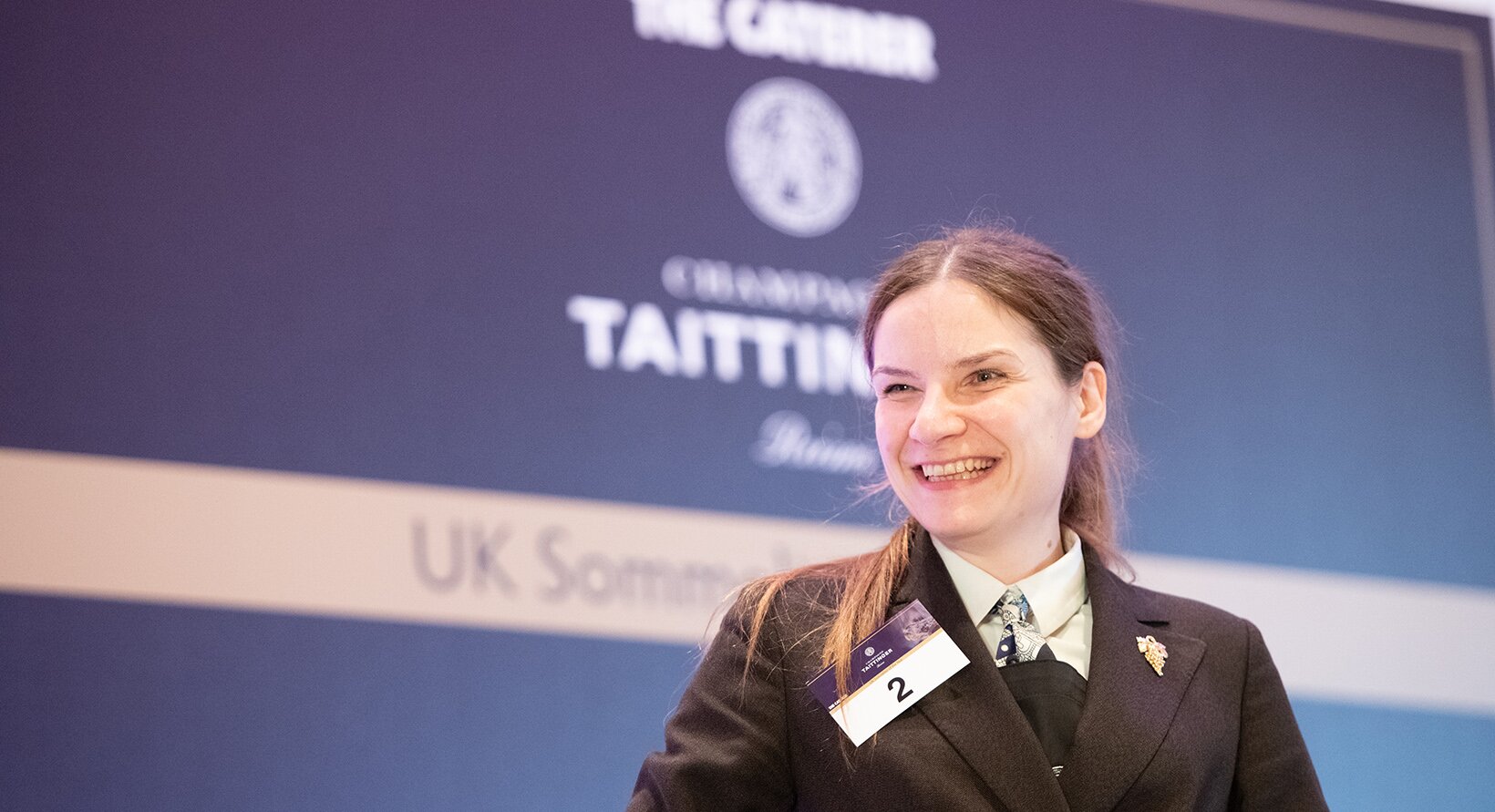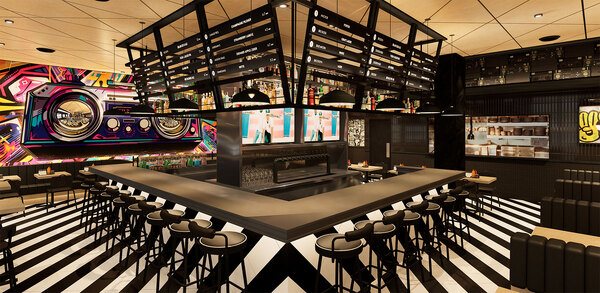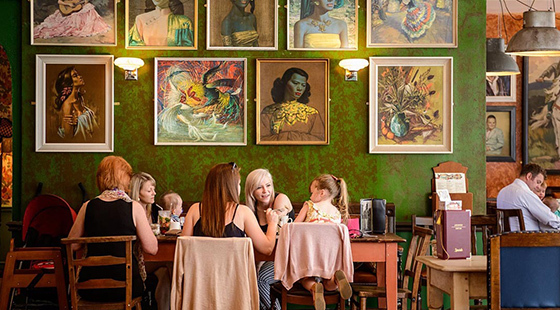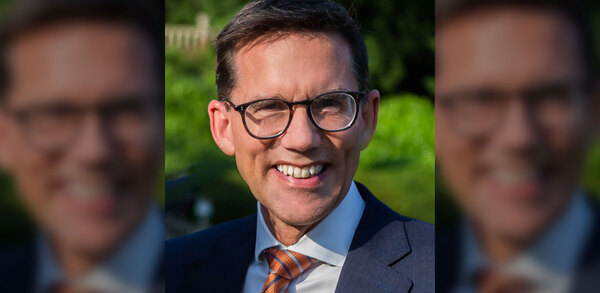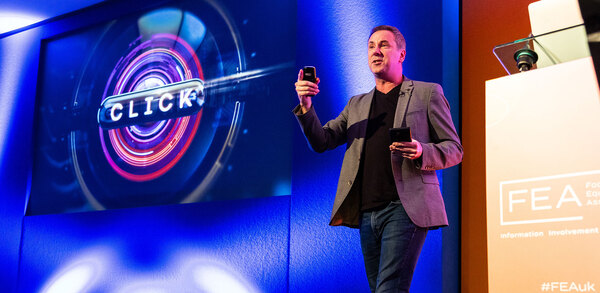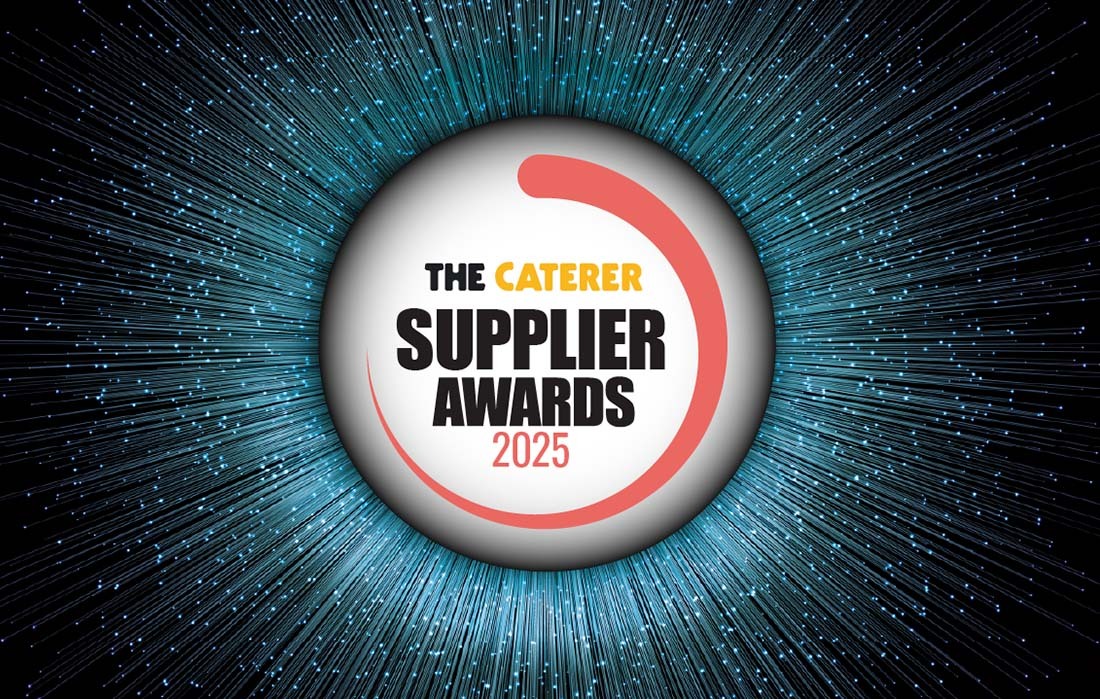Agnieszka Swiecka took the crown at Taittinger UK Sommelier of the Year 2023
The Taittinger UK Sommelier of the Year final put the line-up of the finest UK talent on the stage, with Agnieszka Swiecka taking the crown
Despite a typically changeable British summer day in London, the competitors in the finals of the Taittinger UK Sommelier of the Year were definitely feeling the heat as the contest reached its culmination last week.
A long and intensive day for the finalists saw 11 initial candidates whittled down to just six for the semi-final, and then a final three for the last set of challenges, held at the London Hilton on Park Lane in front of a specially invited audience from the hospitality and wine industries.
It fell to Nicolas Clerc, host for the event, president and founder of the UK Sommelier Academy, and a board member at the Court of Master Sommeliers Europe, to announce the three contenders who had made it to the final.
They were Martin Kleveta, head sommelier at Alain Ducasse at the Dorchester; Dion Wai, assistant head sommelier at Hide Above; and making her second consecutive appearance in the finals, Agnieszka Swiecka, head of wine at the Audley and Mount Street restaurant.
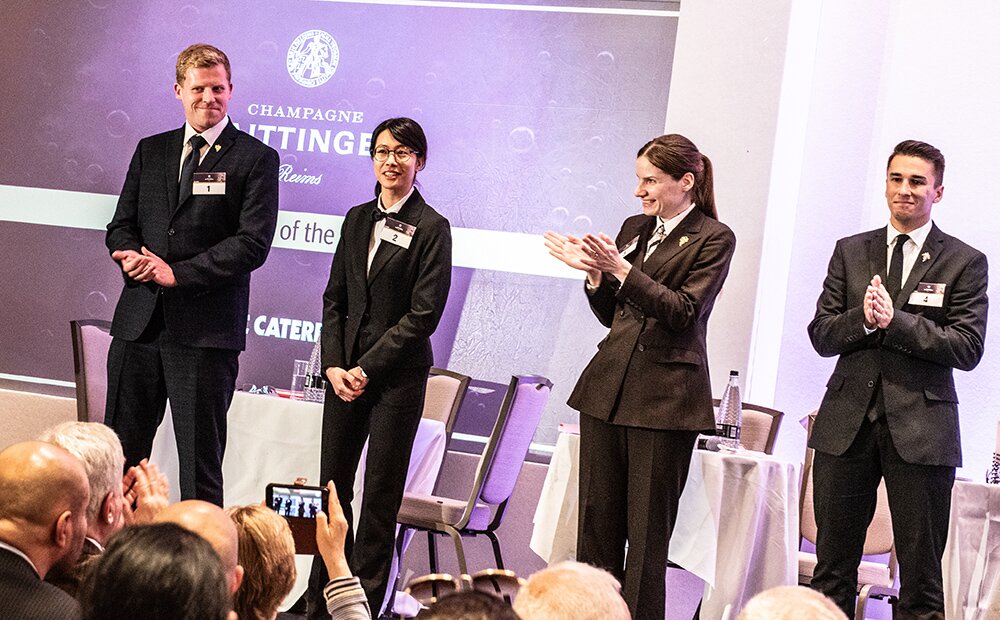
Each in turn was put through a series of challenging tasks under the intense scrutiny of a panel of judges, which included a number of former winners of the title. The various tasks called upon the contenders not only to interact with the judges in several scenarios, which would be daunting enough, but also to apply their knowledge in challenges which put them firmly in the spotlight on their own.
These no-hiding-place challenges started with a series of nine slides, replicating a diverse wine list, but with each slide containing at least one significant error which the contenders had to identify and correct. The tasks quickly moved on to tastings, with the contenders presented with two glasses of red wine. They were asked to describe and identify the first as they would to a restaurant customer, and the second more technically in an organoleptic fashion. A spirits’ tasting followed, including the requirement for a cocktail recommendation for the final spirit, a bourbon.
A food matching task called upon the candidates to identify four cheeses, suggest wine matches for them, and then taste a mystery beverage and offer an opinion on its suitability as a match for cheese. This proved to be saké, which definitely divided opinion.
Among the challenging interactive tasks set for the finalists was what may have initially seemed the relatively straightforward job of opening and serving a bottle of wine for a table of six. However, the scenario quickly developed into a multi-table drama, with the sommeliers asked to deliver glasses of wine to friends on a second table, only to be the asked to open a half bottle of Champagne for the second party, and get back to the first table to finishing serving the wine before the clock ran down.
An additional interactive task required the finalists to recommend a wine to match each dish in a five course meal, with the added complication that each wine had be from a different decade. With the combined recommendations spanning over a century, the judges will have been relieved that no bill was being presented.
The finals culminated with all three candidates on stage together for a quiz and final pouring task. Failure to recognise images of some fairly well-known wine industry personalities and locations during the quiz prompted head judge Katherine Larsen to diplomatically suggest afterward that perhaps a little less formal study and a little more reading around the subject might benefit some competitors.
Finally, the candidates were asked to pour exactly 20 equal glasses of Champagne from a magnum of Taittinger, a task made slightly more complicated by the fact there were 21 glasses on each of their tables.
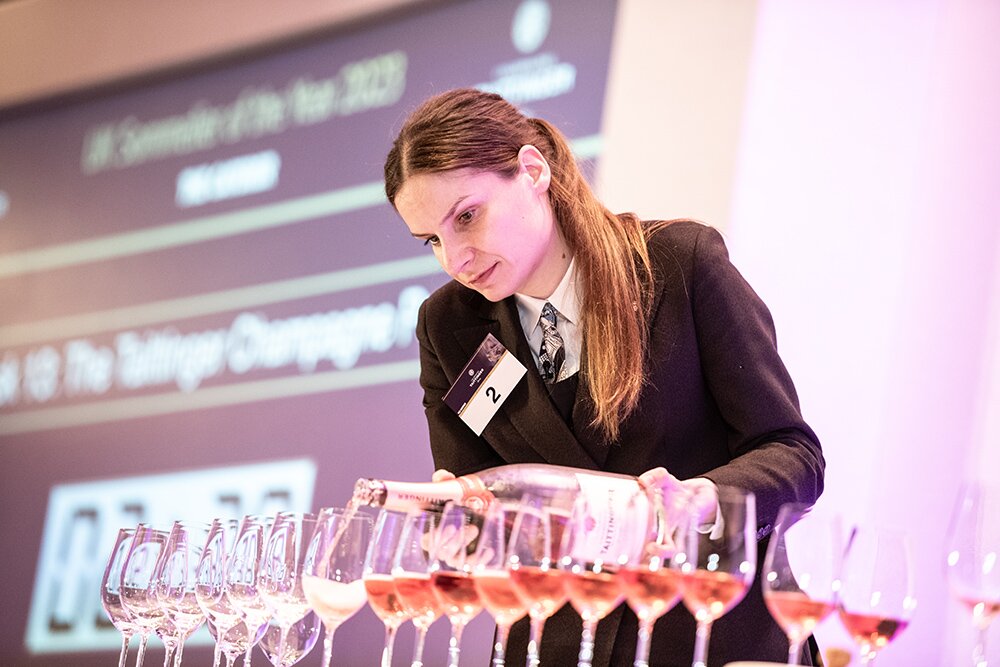
The judges then completed their final scoring, after which Nicolas Clerc, praising the calibre and professionalism of all the candidates, announced Agnieszka Swiecka as Taittinger UK Sommelier of the Year.
Emphasising the importance of the competition, Taittinger’s UK director Kevin McKee, said: “We are desperately in need of a solid, great hospitality industry, and if there’s one thing that you can’t get when you go into a supermarket, or get your home delivery, it’s a sommelier. They don’t come to your house with your order and advise you on what wines to drink and enjoy. So, sommeliers are pivotal to the success of restaurants, hotels and bars in the UK, and what we have here today are the absolute champions of their art.
“We were lucky enough to take some of the contestants to Champagne Taittinger recently, and it’s quite humbling to be in their company. Their knowledge, expertise and skills are really first class. So, the Taittinger family is delighted to be involved with this great competition, and it’s vital for us to give back to the industry.”
What the three finalists said
“It was a very intense day, with some challenging tasks. I enjoyed the blind wine and spirit tastings particularly – I’m not so good with cheese, so maybe not that one quite so much. Both the others thought the saké went well with the cheese, which I didn’t. I’m very proud to have taken part.” Martin Kleveta
“I’ve had a wonderful day, I think it really brings the community of sommeliers together. We really need events that showcase the best of our trade. I really enjoyed the on-stage performance, particularly the food and wine pairing.” Agnieszka Swiecka
“The waiting is probably the hardest part of the finals, so I was very glad to get on stage and start the tasks. I was really happy with the competition overall. I enjoyed the wine tasting – it’s just you and the glass, which is straightforward. I didn’t do too well on the wine list corrections, though.” Dion Wai
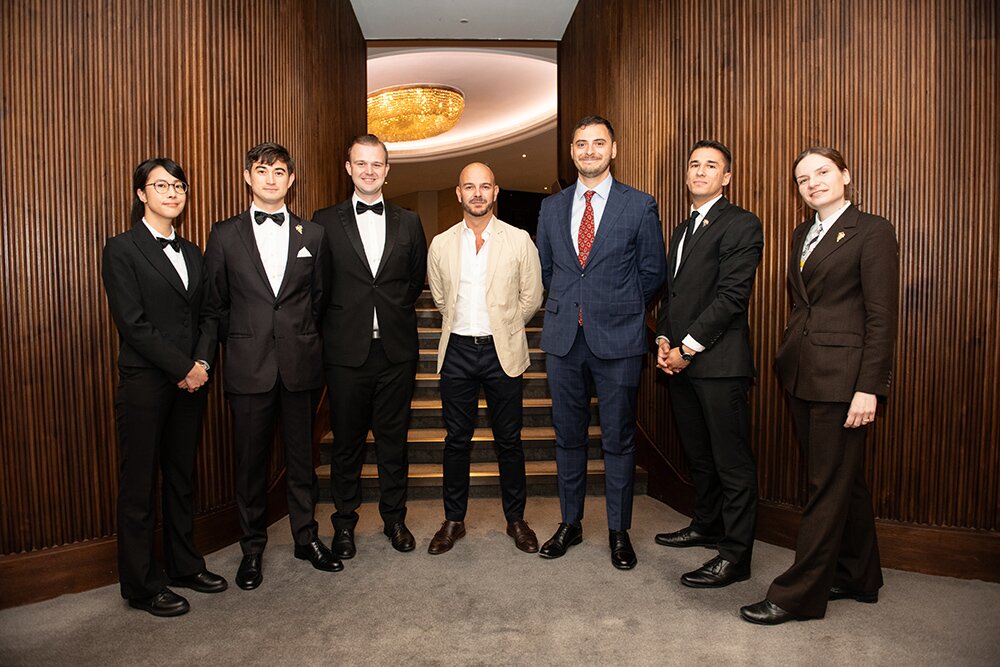
What the judges said
“It was great to see some new competitors who we haven’t seen on the stage before. I thought they all had great energy, and it gives us great hope for UK sommeliers into the future. They show great knowledge and thought. They are very approachable, but balance that with a high level of skill.
“If I had to make one suggestion to young sommeliers, it’s maybe taking a less structured approach to your studies and get a fuller picture of what people are doing in the sector. Read newspapers and magazines, and listen to podcasts.” Katherine Larsen MS, head judge
“All the contenders worked hard and they have clearly been studying. The finals are quite a high-pressured environment, so it’s understandable they’ll get certain things wrong. I’m very happy with the level they’re operating at.” Isa Bal MS
“There were some excellent performances. Those whose first time it was on the stage did really well – it can be very nerve-racking. It’s many years since I was up there, but I still remember the pressure. I think there’s an even greater depth of knowledge needed now, and the tasks are more complicated.” Geroid Devaney MS (2008 winner)
“Nobody was perfect, but nobody completely missed anything either. We’re seeing a new generation of sommeliers coming up and obviously they’re quite ready to compete.” Eric Zwiebel MS (2004 winner)
“This year’s competition was very tough. Even some of the semi-final tasks really put them through their paces. The reason it’s very tough is that the competition needs to match the skill level of sommeliers in the UK, and that skill level is very high.” Romané Basset
”The calibre of competitors this year was very good, and I think as a generalisation, it was a slight step up from last year, which I think may have had something to do with the lockdowns and the lack of exposure to wine events and training. There were some nerves, but we saw professionalism, good mechanics, and good application of knowledge.” Matt Wilkins MS (2005 winner)



